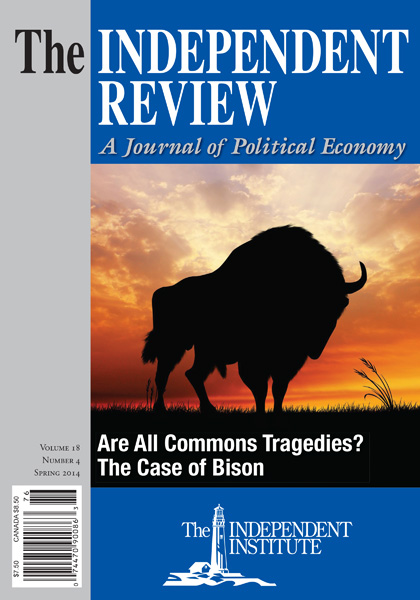During his first presidential term (1885-89), Cleveland opposed the partisan “spoils system” in the civil service, private legislation to benefit particular constituents, federal disaster relief, and protectionism. Public choice theory provides an illuminating framework for examining the challenges he faced.
Stefanie Haeffele is Senior Fellow in the F. A. Hayek Program for Advanced Study in Philosophy, Politics, and Economics at the Mercatus Center at George Mason University.
Virgil Henry Storr is associate professor of economics at George Mason University.
Economic History and DevelopmentEconomic PolicyEconomyGovernment and PoliticsLaw and LibertyPolitical TheoryPublic Choice
| Other Independent Review articles by Stefanie Haeffele | |
| Fall 2023 | Viviana Zelizer: Relational Exchange and Association |
| Summer 2019 | Is Social Justice a Mirage? |
| Other Independent Review articles by Virgil Henry Storr | |
| Spring 2020 | Reconsidering Weber’s The Protestant Ethic and the Spirit of Capitalism |
| Summer 2019 | Is Social Justice a Mirage? |
| Fall 2018 | Gordon Tullock’s Legacy: An Introduction |









